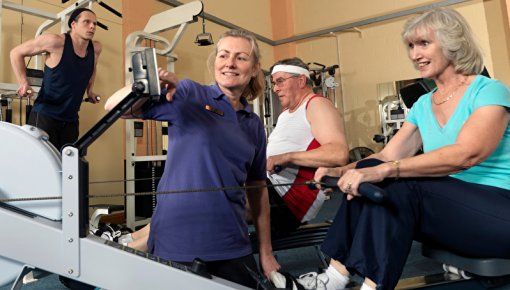Do exercise programs help if you have heart failure?

Many people with heart failure avoid strenuous physical activities. But that is not actually a good idea. Special exercise programs can help to improve your physical fitness and quality of life.
People with heart failure usually get exhausted and out of breath more quickly, even during physical activities that didn’t use to cause any problems. Their hearts no longer manage to pump enough oxygen-rich blood to organs, muscles and other tissue. This can be frightening, and many people with heart failure stop being so physically active. But if you hardly get any exercise, you become less fit, which affects your quality of life and independence too.
In order to break this vicious cycle, special exercise programs have been developed for people with heart failure. The exercises in these programs aim to strengthen their cardiovascular system without being too much for their bodies to handle.
